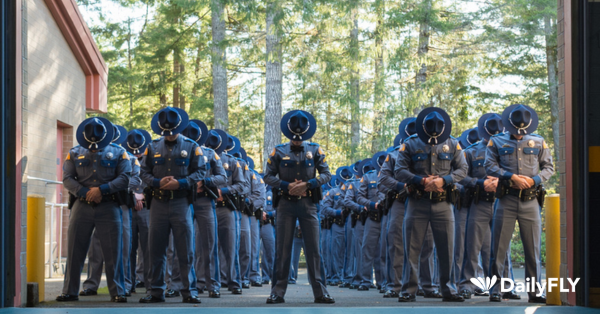(The Center Square) – The Washington State Patrol is bracing itself for a trooper shortage after the graduation of its newest cadet class.
“We’re facing the perfect storm,” said WSP Communications Director Chris Loftis. “We’re looking at a long period of vacancies.”
Forty-three cadets graduated Wednesday, according to KING 5 News. Loftis said this tracks with recent years but cannot fix the current deficit.
The WSP offers 1,100 positions overall, he said. After the most recent graduating class, around 200 such positions sit vacant. Out of the agency’s 683 trooper positions, 141 are vacant.
But the shortage has another layer, as the WSP expects an unusually large retirement window in the next four or five years.
“We had large academy classes in the late ’90s and in the early 2000s, especially after 9/11,” Loftis said. “As we get to those 25-year anniversaries, people get to where they can retire.”
For the past decade, the WSP has seen an average vacancy of 80 positions, according to Loftis. That changed with the vaccine mandate of 2021 when staffing dropped to today’s levels.
“About any large law enforcement agency in the country, you get a similar story,” he said. “Everybody’s looking at vacancies.”
Loftis also said law enforcement’s media portrayal had decreased the agency’s applicant numbers.
“They don’t feel as accepted and as appreciated,” he said.
Pursuit laws also discouraged troopers from staying on the force, according to Loftis. HB 1054 raised the standards for vehicular pursuit in 2021.
“You have to weigh that potential danger,” he said. “The first year after pursuit laws were changed, we had over 3,000 incidents where people just took off, and they knew we weren’t going to be able to chase them.”
Democratic Gov. Jay Inslee signed SB 5352 on May 3, lowering the pursuit threshold. Loftis said this returned some authority to officers on the ground.
The WSP compensated for shortages by moving resources and using overtime, according to Loftis.
“There’s a limit to how long you can move things around, there’s a limit to how long you can keep paying overtime,” he said. “Those resources leave you, they get tired.”
To prepare for fewer officers, the agency adopted new strategies like assigning new hires to more local jobs and reaching out to female and minority applicants, Loftis said. The WSP also offers financial incentives and lateral transfers between agencies, established by HB 1638.
Loftis said a lateral hire gets, on top of regular salary, an extra $1,000 after training, $6,000 after the first year on the job, and another $6,000 after two years. New hires without experience get $5,000 after the academy and $5,000 after one year on the job.
“I’m dealing with a cat up a tree and the next day I’m dealing with terrorism. That spectrum and range of experience, it’s interesting and exciting,” he said. “We need you, and we need you now.”

















